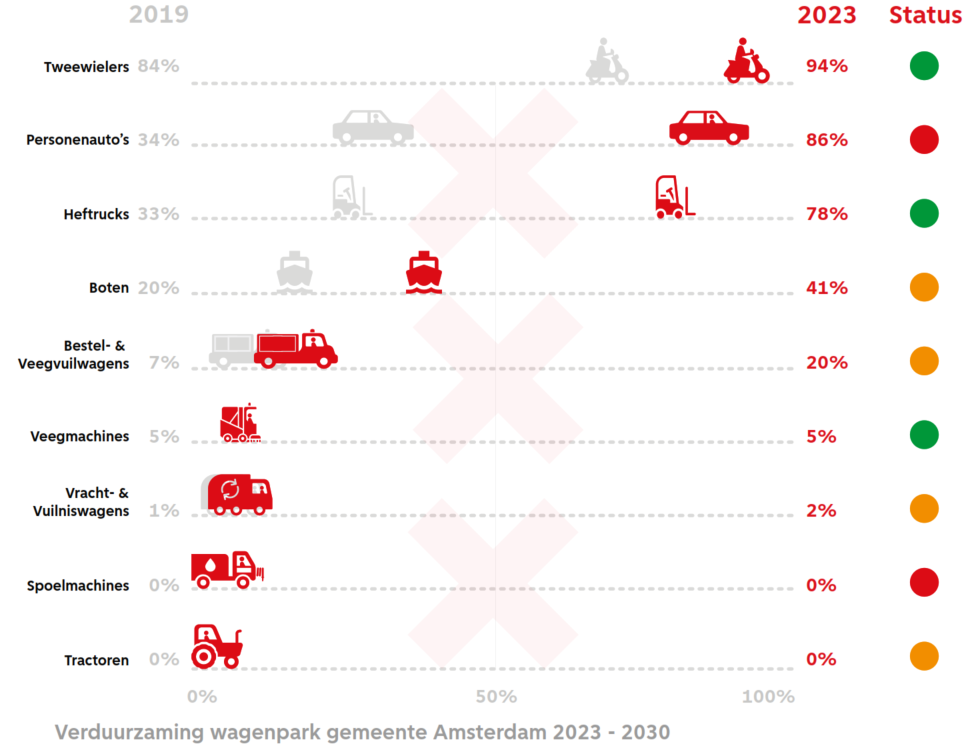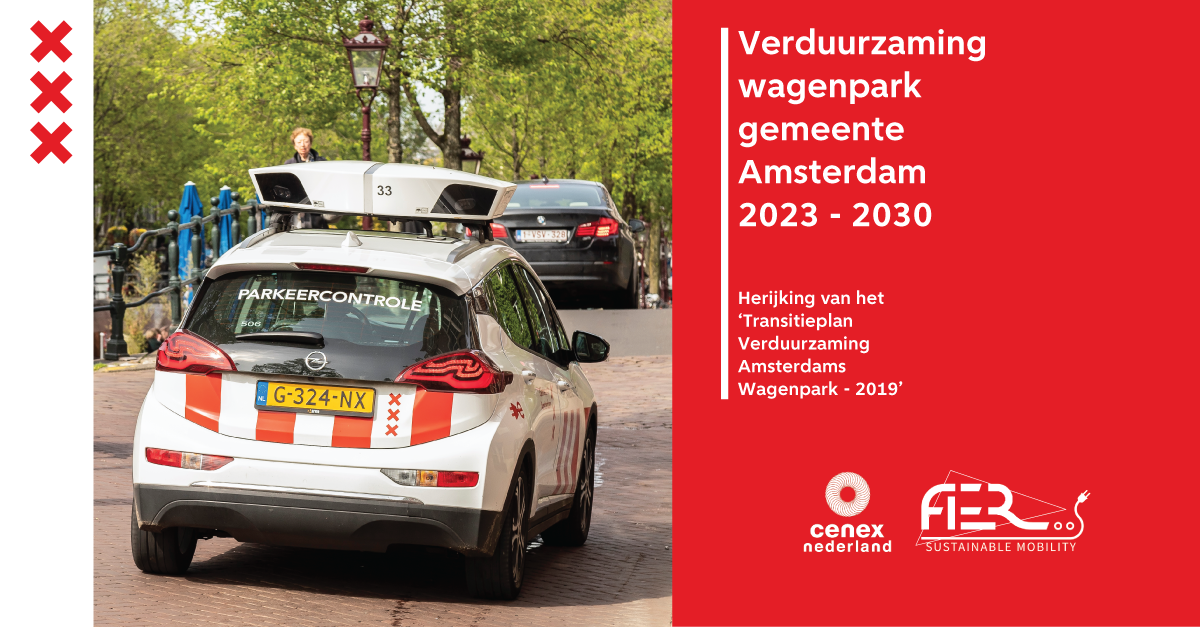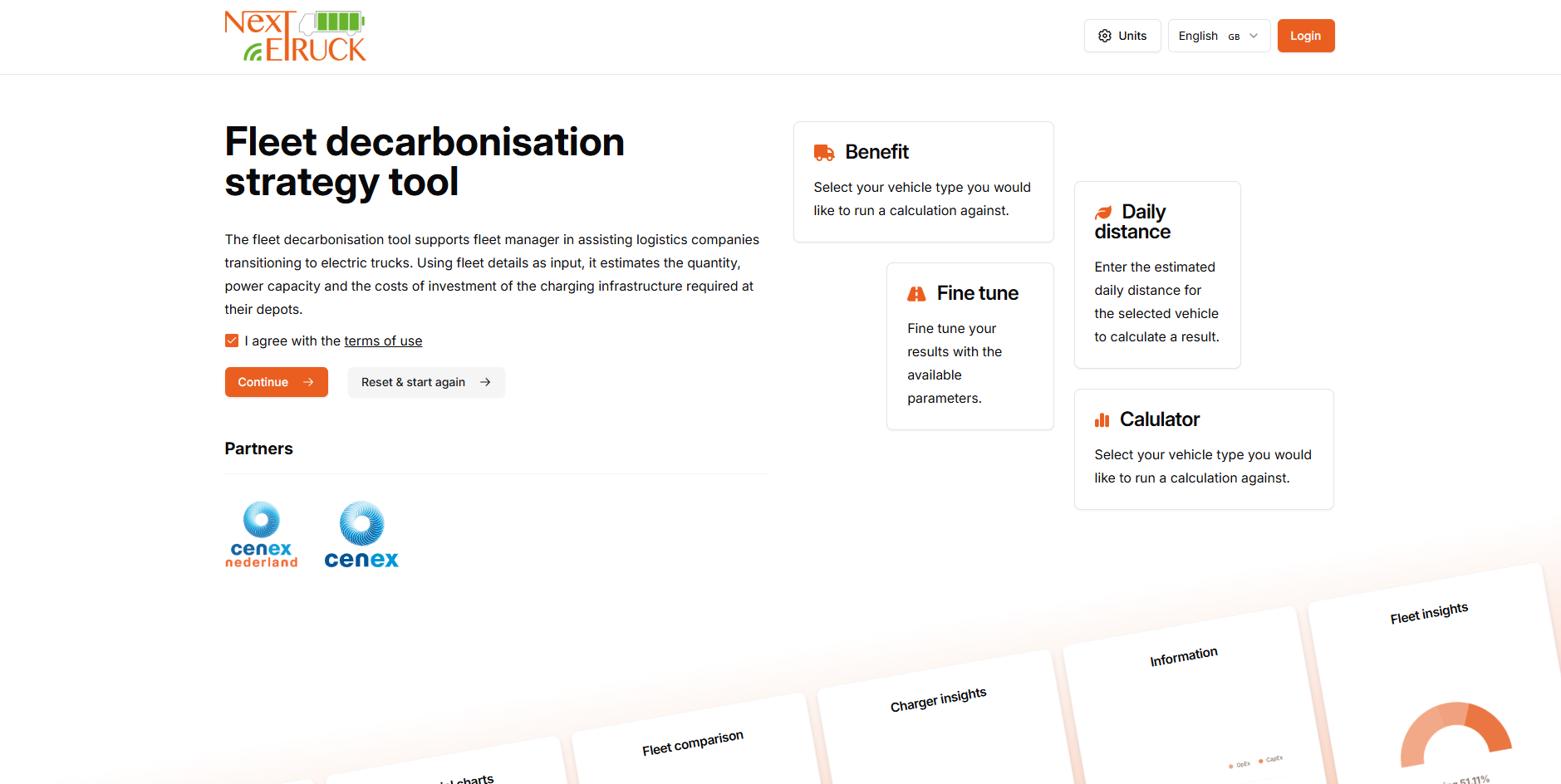At a time when sustainability is key, the municipality of Amsterdam is implementing an ambitious plan to make its fleet more sustainable. As part of this initiative, and in collaboration with FIER Automotive, Cenex Netherlands has re-examined and revised the 2019 fleet transition plan to refine and adapt the targets to the latest developments.
Assignment description in context
The municipality of Amsterdam is determined to make its fleet emission-free by 2030. To achieve this, we were asked to revise the 2019 transition plan and adapt it to current sustainability goals, market trends and operational requirements. This process required an integral consideration of various interests and goals of all parties involved within the municipal organization, including administrative approval.
Scope and expected developments
Our services to the municipality included the preparation of an advice; taking into account sustainability objectives, market developments and municipal operational needs. Although the implementation plan was outside the scope, we still provided insights into the risks and corresponding possible measures. Various urban plans and initiatives were also taken into account when drawing up the advice, such as the ‘Roadmap Amsterdam Climate Neutral’ and the ‘Zero Emission Zone’.
Results and Key Considerations
Amsterdam’s fleet includes a diverse range of vehicle types and fuels for which we have analyzed the current state of affairs (July 2023). The progress against the targets set in 2019 could then be determined. In doing so, we looked at aspects of both the increase in electric vehicles and the successful tests with sustainable alternatives. These results showed that a significant part of the goals for 2030 are in sight, or even already achieved. However, we also found that some of the ambitions from 2019 seem difficult to unlikely to achieve, partly due to challenges such as delayed deliveries and technical limitations of alternative models in the market compared to operational requirements.

Importance of Integral Thinking
An integrated approach appears to be essential, not only with regard to vehicle selection, but also for facilitating appropriate charging infrastructure and assessing operational efficiency. A one-to-one replacement is not always the best choice. Several factors, including investment costs and availability of charging infrastructure, need to be considered.
Conclusion
Recalibrating the fleet transition plan was a complex but necessary process. Together with FIER Automotive, Cenex Netherlands has not only refined the sustainability objectives of the City of Amsterdam, but also provided valuable lessons for the remaining transition efforts. These lessons emphasize the importance of flexibility, integral thinking and the value of collaboration in the pursuit of a more sustainable (mobility) future. With this revised transition plan, the City of Amsterdam, under the leadership of a recently appointed ‘director of fleet transition’, is continuing the greening of their fleet.






